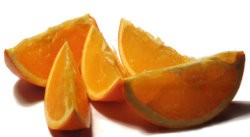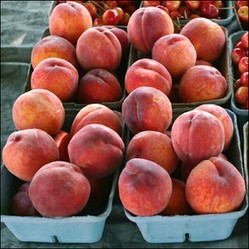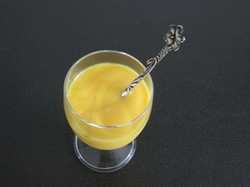
Juicing Tips and Information
by Noni
Some of the following juicing tips may or may not be known to you. Nevertheless it is always good to get back to the basics and check the following simple rules again.
Use Organic Fruits and Vegetables
The best fruits and vegetables you can use for juicing are those organically grown. Even though organic food is usually more expensive as compared to the conventionally grown foods, the difference in health benefits and quality is largely on the side of the former. If organically grown produce is not available at a give time, make sure you remove the skin of the fruits and vegetables prior to juicing them.
Great Books about Juicing
Avoid Heavily Sprayed Fruits and Vegetables
Here is a list of non organic fruits and vegetables that are heavily sprayed with toxic pesticides (presented in order of decreasing pesticide concentrations).
Vegetables:
- Celery
- Spinach
- Potatoes
- Bell Peppers
Fruits:
- Pears
- Peaches
- Apples
- Cherries
- Strawberries
- Grapes
- Raspberries
Make sure you buy them in the organic markets.
Clean Them Thoroughly
Wash your fruits and greens thoroughly before juicing. If you see any imperfections or moldy and otherwise damaged parts, remove them from the rest.
Some Fruits Should be Juiced Without the Skin
Oranges and grapefruits should be juiced without the skins. Orange peel is not toxic by itself, but, due to heavy spraying with pesticides, if you eat them in large quantities, you might have problems. Unless you are 100 percent sure you have certified organic oranges, it is better to play safe and remove the peel. The same holds also for the fruits imported from the tropical areas of the world (tropical fruits), for example kiwis.
Although the skin of a number of fruits (including lemons) can be left on, I still prefer to remove it if I am not sure about the origin of the produce.
The skin of mangos and papayas contains irritating substance. You should peel them too.
Best Juicers
 | Mueller Austria Juicer Ultra 1100W Power, Easy Clean Extractor Press Centrifugal Juicing Machine,... Juicing improves health people of all ages need to absorb vitamins from fruits and vegetables. Mueller juicers are a great way to improve your healthy lifestyle and over-all hea... Only $49.97 |
 | Hamilton Beach Juicer Machine, Big Mouth 3" Feed Chute, Centrifugal, Easy to Clean, BPA Free, 800... Looking for an ideal juice drink that's fresh, free of preservatives and tastes 10 times better than store-bought juices? Take the plunge and go with the big mouth juice Extract... Only $49.99 |
 | Breville JE98XL Juice Fountain Plus 850-Watt Juice Extractor The Breville JE98XL's dual speeds allow you to juice both hard and soft fruits and vegetables Get into the world of juicing with this no-nonsense dual-speed juice fountain. Idea... |
Leave the White PIth on
Eating the white part of the orange (the pith) is considered healthy. It has been shown that this component has some antioxidant and anti-cancer properties. That is why you should leave on the white pith while juicing your oranges.
No Need to Remove the Lemon Seeds
Lemon, melon and grape seeds are generally considered safe, so you need not separate them before preparing your juices. In fact, lemon seed contains a small amount of salicyclic acid - the main ingredient of Aspirin.
Always Remove the Apple Seeds
Apple seeds, however, should be removed. They contain traces of cyanogenic acids (strong poison), so try not to put them in your juicer. If the seed is swallowed without chewing, the seed coating can protect us from the toxic substances contained within the core. If chewed or juiced, the toxin is released, but the dose of toxic substances in one apple is relatively small, so the body can easily detoxify it, but it can cause serious problems with young children. So, it is always a good idea to remove the apple seeds entirely.
Remove the Pits Before Juicing
To all stone fruits you should remove the pits before juicing. These include plums, cherries, mangos, peaches, apricots and other fruits that contain pits.
Drink Your Juice as Soon as Possible
If possible drink the extracted juice right away. That is the best possible practice if you want to get the full range of nutritive values from the juice. If you absolutely have to, you can store your juice in a refrigerator for a limited period of time - up to 24 hours. Yes, the juice will loose some of its potency, but you will still get some nutritive benefits from it.
Happy Juicing!
Video Juicing Tips
In this video you can find some additional juicing tips.
Other Interesting Articles
You might also like
What To Do With A Bushel of Summer PeachesA bushel of peaches is a lot, but there is no need to let them go to waste. H...
How to Make Eggnog with a Dutch TwistEasy recipe for Dutch advocaat, thick and creamy and eaten with a little spoo...









 Mistakes People Make When Juicing Carrotson 04/06/2012
Mistakes People Make When Juicing Carrotson 04/06/2012



Comments